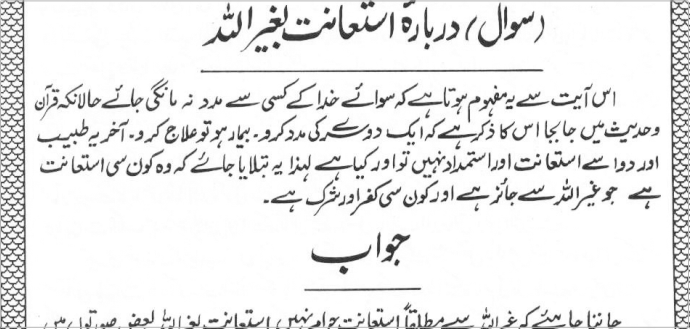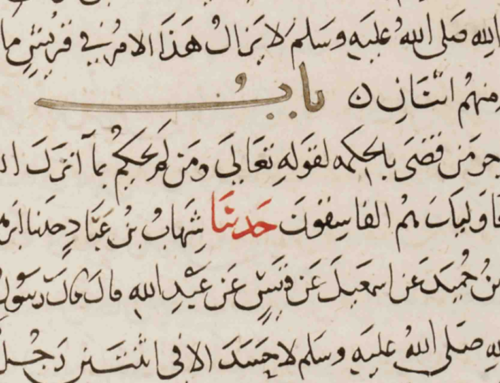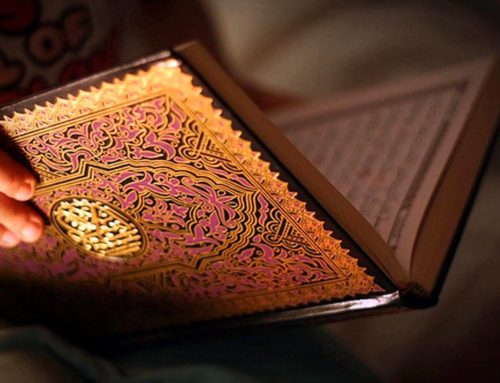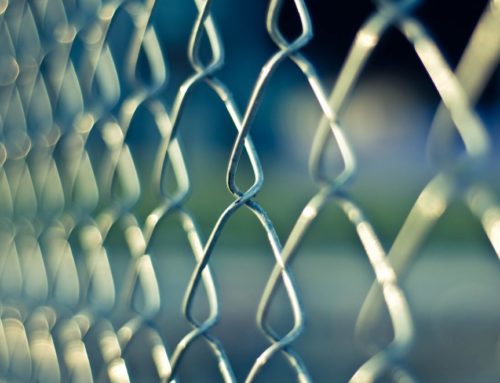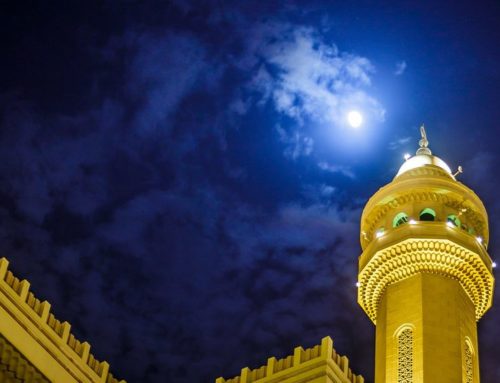Translated by Zameelur Rahman
A Question on Seeking Help from other than Allah
It is understood from this verse [1]Meaning, the verse, “You alone we worship, and You alone we ask for help.” (Qur’an 1:4) that no one besides Allah may be asked for help, although it is mentioned in various places of the Qur’an and hadith that one should assist another, and if one is ill he should seek treatment. If this is not ultimately seeking help and seeking aid from the doctor and the medicine, then what is it? Thus, can it be explained what kind of seeking help is not permissible for other than Allah, and what kind is kufr and shirk?
Answer
It should be known that asking help from other than Allah is not haram absolutely. In some scenarios seeking help from other than Allah is kufr and shirk, and in some scenarios it is permissible. The regulating principle in this is that if while believing that someone besides Allah acts independently and has intrinsic power, or while believing that after divine bestowal and lordly authorisation, he gained such power and volition, he is asked for help, then without doubt, this is shirk and kufr.
Or it is not believed that in bringing about the effect in this matter and in the agency of it, he is intrinsically or extrinsically independent [2]“Independence” in this context means an uncontested power and authority in which the one who possesses it is not dependent on Allah in each and every instance of exercising that authority … Continue reading ; rather, he is not treated in the way something with intrinsic independence is [treated], but the assumption of his independence occurs to others; such seeking of help from other [than Allah] is impermissible and haram; and in some scenarios there is fear of kufr and shirk, which will become clear from the following explanation.
Since in the first scenario someone besides Allah is believed to be an independent agent and intrinsically powerful, no one has any disagreement over it being shirk.
The second scenario is that the [entity] other [than Allah] is not believed to be intrinsically powerful, but he is believed to be powerful by divine bestowal, that is, Allah (Exalted is He) bestowed on him power and volition in those matters outside of human capacity, and he may dispose in them however he wishes, and he may grant whoever he wishes and withhold from whoever he wishes. [This is] just as a king grants his ministers and governors some jurisdictions, and after being granted those jurisdictions, they are believed to be independent, and thereafter, the knowledge and will of the king has no involvement; in this way – protection is from Allah – Allah (Exalted is He) gave such jurisdictions to the prophets and saints, and after divine bestowal they became independent and free.
The Arab idolaters would hold precisely this belief with respect to the angels and idols. [They would say:] “We do not worship them except to draw us nearer to Allah.” (Qur’an, 38:3) The idolaters did not consider them intrinsically independent. Rather, they considered them independent agents after divine bestowal, and they would say that everything they have was given to them by Allah. The Qur’an refuted this belief in various places. For example, He (Exalted is He) said: “Beside Allah, they worship those who can neither harm nor benefit them.” (Qur’an, 10:18) And He (Exalted is He) said: “Those whom you worship beside Allah do not have power to give you provision. So seek provision with Allah and worship Him.” (29:17)…The disbelievers did not believe them to have power over anything without divine bestowal. He (Exalted is He) said: “Say, ‘I possess no power to cause you any harm or bring you to a right way.’” (Qur’an, 72:21) And He (Exalted is He) said: “Say, ‘I have no power to bring a benefit or a harm to myself, except that which Allah wills.’” (Qur’an, 7:188)
In these verses, intrinsic ownership and volition over benefit and harm are not negated [but extrinsic ownership is negated], because nobody claimed intrinsic ownership and volition over benefit and harm, nor can any sane person concede this for anyone besides Allah (Exalted is He), that he has intrinsic ownership of benefit and harm. Even the idolaters accept this. The original owner and creator is Allah.
The third scenario is when this [entity] other [than Allah] is not believed to have intrinsic or extrinsic independence, but he is treated in the way the intrinsically independent one is treated. For example, either he or his grave is prostrated to, or a vow is taken by his name. This is also haram and shirk, but this is not creedal shirk but practical shirk. The one who commits this will be considered a perpetrator of haram. He will not come out of the fold of Allah.
The fourth scenario is when in asking for help from other [than Allah], it is suggestive of the independence of this [entity] other [than Allah], like asking help from spirits. Even though this person does not believe them to be independent, nonetheless, since the idolaters ask help from the spirits believing them to be independent, this is why asking help from spirits is absolutely haram. There is no doubt over it being haram. The doubt is whether this person will come out of the fold of Islam or not? Since this action is a complete manifestation ofshirk, this is why there is strong fear of him coming out of the sphere of Islam.
The summary of the discussion is that the first two scenarios are definitely kufr and shirk, and the one who commits them has come out of the fold of Islam, and the last two scenarios are definitely haram. The uncertainty is over whether this person will be considered a disbeliever and outside of the fold of Islam or not? However, if help is sought from such a being which asking help from is from the symbols of the disbelievers and idolaters, in that situation, if a mufti or jurist were to give fatwa of kufr and shirk based on the outward, just as he would for the one who ties a zunnar, and he passes a ruling of him being a disbeliever, there is no difficulty in this, since that matter is from the symbols of kufr and shirk, which is why his intention will not be taken into consideration.
However, [seeking help in] ordinary matters which are included under human capacity, and are connected and joined to the world of means, and there is not even a doubt from any person of it being an independent agent, like taking help from bread to remove hunger, or taking help from water to remove thirst; such seeking of help from other than Allah is permissible, with the condition that reliance is purely on Allah and the [entity] other [than Allah] is believed to only be a means, path and a manifestation of divine aid. [This is] just as a pipe is merely a path for the water to arrive, similarly the means are a path for divine effusion, and He is the real giver. The idolater believes that it is this pipe that is giving me the water, which is why he asks for water from the pipe, and adorns the pipe. For example, the person that believes medicine to be a means and the doctor to be merely one who treats [the patient], there is nothing wrong. But if he believes the medicine to be independent in bringing about the effect, and believes the doctor to be the one who grants good health, this will becomeshirk.
It should be known that the Shar‘i means also have the ruling of ordinary means. The only difference is that the nature of ordinary means as means is inferred from the normal course [of nature], and the nature of Shar‘i means as means is inferred from the Shari‘ah. Thus, in just the same way it is permissible to ask help in ordinary matters, it is permissible to seek help in Shar‘i matters. For example, it is also permissible to take help from supplication, ruqyah, patience, prayer and so on, because these matters are known from the Shari‘ah to be means [of aid].
In non-ordinary matters, even if the [entity] other [than Allah] is considered to be a manifestation of divine aid, and the real reliance is also on Allah, but since in non-ordinary matters their nature as a means is not established by the normal course [of nature], nor by Allah, and assuming it was established [on some occasions], it is not definitive or perpetual; this is why seeking help from other than Allah in non-ordinary matters will not amount to kufr and shirk, but heresy and misguidance will certainly occur.
The respected Shah ‘Abd al-‘Aziz (may Allah sanctify his secret) said:
At this point, it ought to be known that it is haram to seek help from other than Allah in the situation that dependence and reliance is on that [entity] other [than Allah], and that [entity] other [than Allah] is not considered [merely] a manifestation of divine aid. If [however] attention and consideration is only towards the Lord, and considering this [entity] other [than Allah] merely as a manifestation of divine aid, and by consideration of the world of means, this [entity] other [than Allah] is outwardly asked for help, it is not against gnosis and is permissible in the Shari‘ah. The revered prophets and saints also sought this type of help from other than Allah, and since attention is only towards Allah (Exalted is He), this is why it does not amount to seeking help from the [entity] other [than Allah], but is in reality seeking help from Allah (Exalted is He). (Fath al-‘Aziz, p. 8)
He said in another place:
Seeking and asking for help (isti‘anah) is either from those that the monotheists and polytheists both will not entertain the doubt that he is independent (mustaqill), like taking help from grains and crops to remove hunger, or taking help from water and drinks to remove thirst, or taking help from the shade of a tree to acquire comfort and rest, or taking help from medicines and herbs in order to remove an illness, or taking help from the emir and king for matters of livelihood, which in reality is an exchange for service, and is not a necessary cause of humiliation, or taking advice from doctors based on their experience and greater knowledge; in these scenarios, the assumption of independence will not occur. Thus, this type of asking for help is permissible without any dislike, because this is not in reality asking for help, but is only outwardly asking for help, and is in reality asking help from Allah (Exalted is He).
Or asking help is from such things that the doubt of having independence in their agency settles in the minds of the polytheists, like seeking help from souls, or celestial and elemental spirits, or asking help from the roaming spirits (that is, those spirits that roam back and forth) like Bahwani, Shaykh Sadad and Razin Khan. This type of seeking help is the essence of shirk and is completely opposed to and detached from the pure Islamic religion. (Fath al-‘Aziz, p. 37)
Ma‘arif al-Qur’an, 1: 21-5
| ↑1 | Meaning, the verse, “You alone we worship, and You alone we ask for help.” (Qur’an 1:4) |
|---|---|
| ↑2 | “Independence” in this context means an uncontested power and authority in which the one who possesses it is not dependent on Allah in each and every instance of exercising that authority (Bawadir al-Nawadir, p. 708), as the author illustrates in the example he presents of the belief of idolaters. “Intrinsic” means such authority was not granted by Allah and “extrinsic” means it was granted by Allah. |

